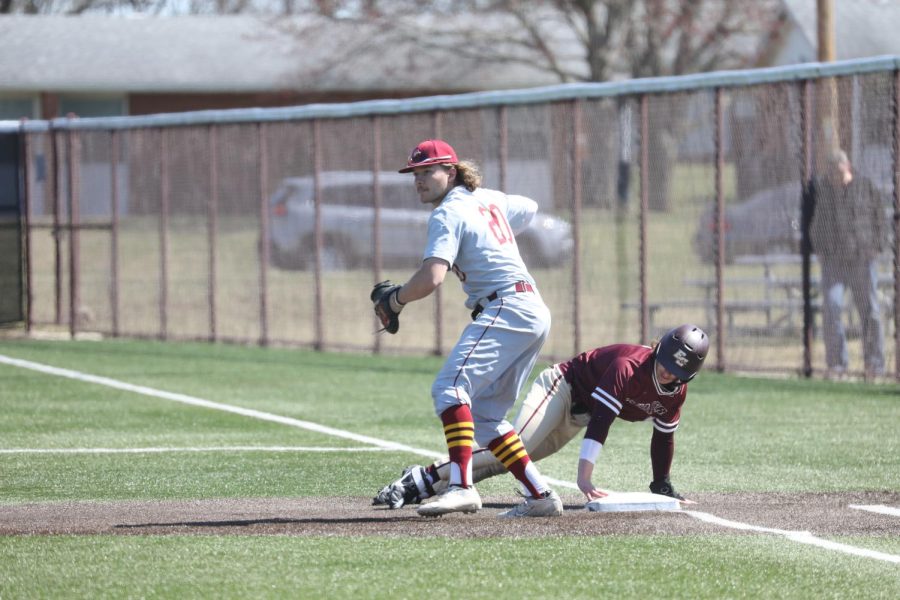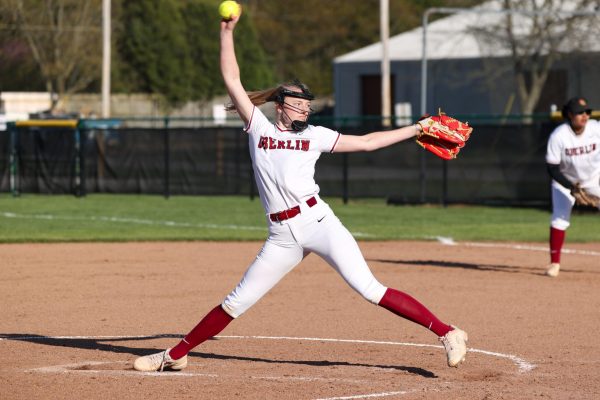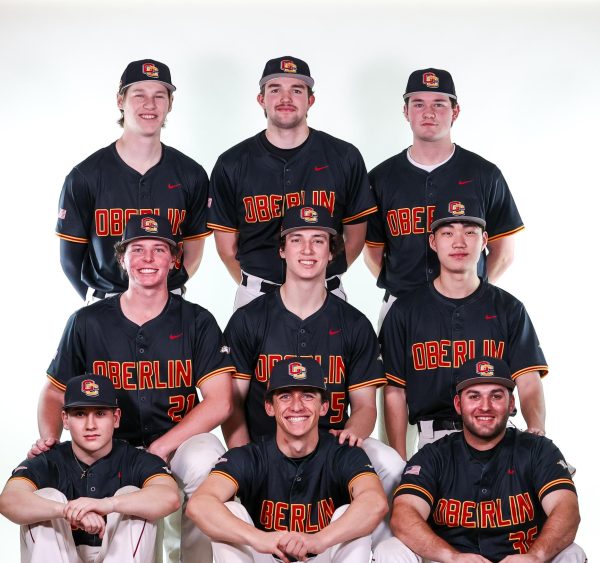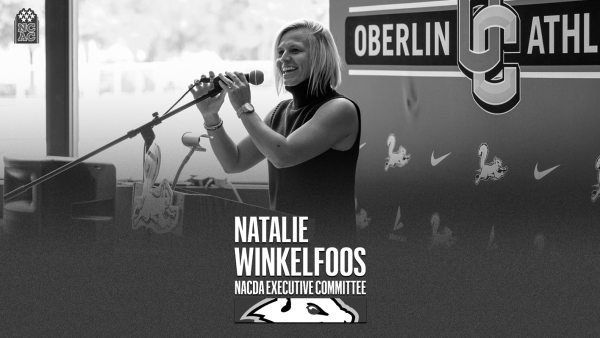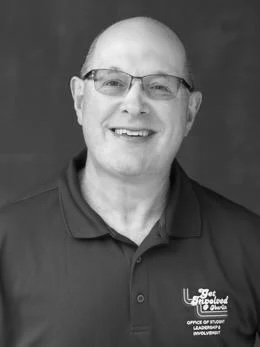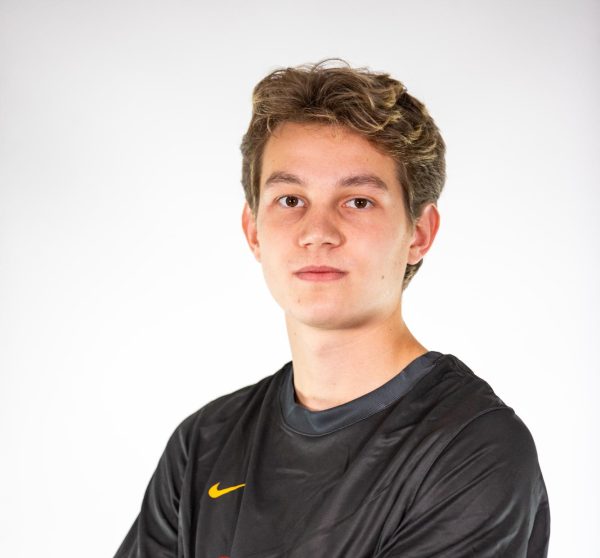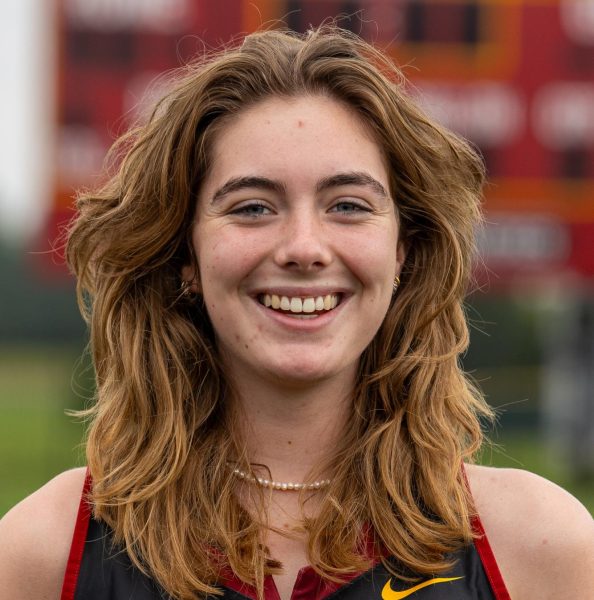ITLR with New Leader of OC Baseball Max Anastasio
Max Anastasio during a recent baseball game.
Third-year baseball infielder Max Anastasio is entering this season with big plans. After not playing baseball at Oberlin since his first year, Anastasio is faced with a new leading role on the team which he has used to encourage his teammates in thinking more critically about the deep-rooted problems of sexual harm within the Oberlin baseball community. He’s challenged his squad to face these issues head-on and has rallied younger players to make a difference in the program both on and off the field. As a recent addition to the lineup, Anastasio has found success on the field in ways he never anticipated with his positive outlook and desire to improve both himself and his team.
This interview has been edited for length and clarity.
How long have you played baseball? Why did you choose to play at Oberlin?
I’ve been playing since I was five years old, so about 17 years. I knew I really wanted to play college baseball when I was in high school, and Oberlin was a good school. When I was looking into colleges, I didn’t realize at the time that baseball would bring me to a place that I’d actually really enjoy or would allow me to explore so many different opportunities. Oberlin has more to it than just being a good school. When I initially came here, I wanted to do the 3-2 Engineering program, but Oberlin showed me that I actually have other interests. I’ve always been passionate about the environment, and just declared an Environmental Studies major in addition to Economics. I never could have anticipated being on the path that I am now.
Was it jarring to be expected to take a leading role after quite a bit of time off?
The last time I was here, I was a first-year and essentially had no say on the team. This year, people look up to me to set an example. If nothing else, I definitely try to lead by example everyday. I don’t necessarily want people to listen to what I say, I just want them to go the extra mile. Not only as baseball players, but as decent humans, cleaning up after ourselves, and working hard after practice to be the best versions of ourselves.
What are you looking forward to as the season progresses?
We missed two years, so our team is very young. This year is a huge development year; there’s so much we’re missing just from lack of experience. Learning and getting better with each game is the most important thing for us. Most of us older players have also been pushing to be not just good players on the field, but off the field, too. We’re trying to hold our teammates more accountable for their actions off the field, which is just as important as getting better as athletes. This is a growing season for us. We want to be the best team we can be, but I also strive for us to be the best people we can be.
Recently you’ve been outspoken about changing the culture of the baseball team, including scheduling a meeting with Survivors of Sexual Harm and Allies. What do you hope to get out of this meeting? What do you hope for the future of the program beyond baseball?
I want our younger players to get exposure to ways they can better themselves. SOSHA has great insight into sexual harm and sexual health. So if we have the opportunity to go above and beyond, we have to seek that out. I’m in the process of trying to get everyone to go to the One Love workshop this Sunday that the Student-Athlete Advisory Committee has helped put together.
What are you interested in outside of baseball?
My teammates kinda make fun of me for it, but I really like soccer. My roommate and I announced both the men’s and women’s soccer games this year and that was super fun for us. I also played in the intramural soccer league when I had the time. Other than that, I was a sustainability engineer this past Winter Term, which combined both of my interests and taught me a lot about what I want to pursue in the future.


